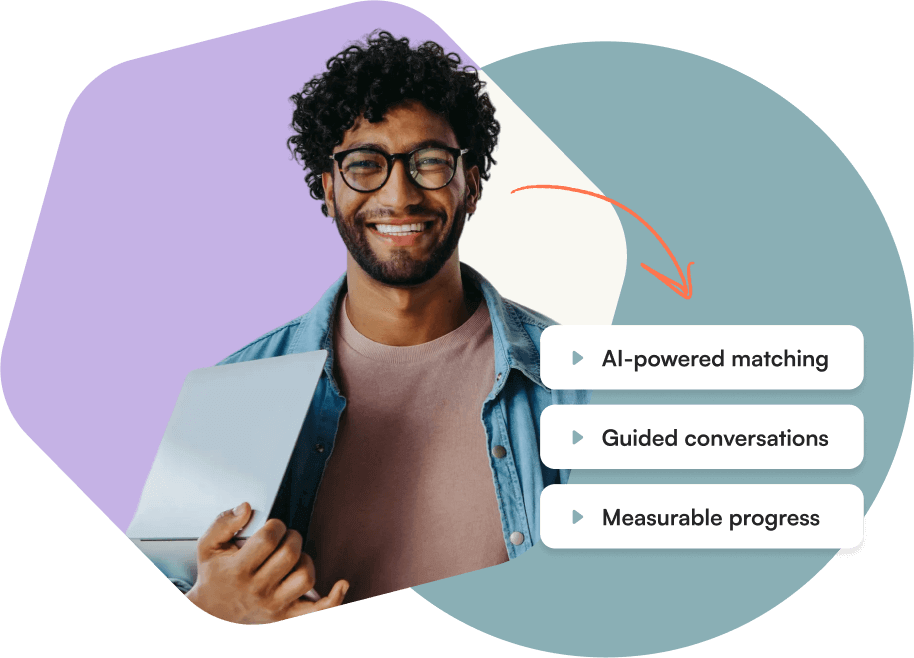Chronus for Higher Education
Academic Mentoring:
The Value of Educational Mentoring
Mentoring is a helpful strategy universities and colleges can provide to connect them with people who can show them new skills, grow their knowledge and encourage them to pursue their goals and ambitions.

Benefits of Academic Mentoring
One of the main goals of universities is to help students thrive and succeed in any way they can, preparing them for the real world after graduation. Whether it’s skills, knowledge or confidence, colleges have started offering these mentorship programs to give students a head start on the “real world” ahead of them. Whether it’s preparing students to pursue the career of their dreams or inspiring alumni to give back to their alma mater by helping students network within their chosen field, mentoring is vital to student growth.
Increase in Student Persistence
Increase in Job Placement
Increase in Graduation Rate

“Chronus gives us the flexibility to customize for our program needs, but also look at data consistently across all programs to measure collective impact.”
Deirdre Schreiber
Senior Training Program Manager, Harvard University
Academic Mentoring Formats
University mentoring can take many forms, each with its own unique benefits. Here are the most popular types of university mentoring programs we’ve seen:
Student Peer Mentoring
Chronus helps universities run peer-to-peer mentoring programs that raise graduation rates. Learn the benefits of peer mentoring programs in higher education!
Student Career Mentoring
Chronus mentoring software helps you run effective student career mentoring programs, giving students a competitive edge after graduation.
New Student Onboarding
Chronus’ new student onboarding software helps academic institutions manage & scale their student onboarding process to improve graduation rates.
Alumni Mentoring
Student mentoring programs provides a meaningful, rewarding experience for alumni. Find out how alumni mentoring software can help students!
Academic Flash Mentoring
One-time student mentoring sessions make the transition to university life easy. Learn how universities can incorporate academic mentoring to help students!
Academic Mentoring Resources

Four Benefits of a University Mentoring Program
Mentoring offers universities a way to efficiently connect students and alumni for support, learning and networking as they move through their university experience and into working life.

11 Best Practices for University Mentoring Programs
Build a university mentoring program with our top 10 best practices. University mentorship programs increase engagement for alumni and students.

Why Colleges Should Support Students With Mentors
Purpose fosters a deeper sense of meaning and connection for employees, which directly benefits organizations.
Ready to See the Chronus Platform for Yourself ?


